“Keep close to Nature’s heart … and break clear away, once in a while, and climb a mountain or spend a week in the woods. Wash your spirit clean.” – Scottish-American naturalist John Muir
Camping – one of the earthiest of endeavors – can inspire the most heavenly of thoughts. But in the middle of the coronavirus pandemic, it inspires a sobering question as well: Is it safe?
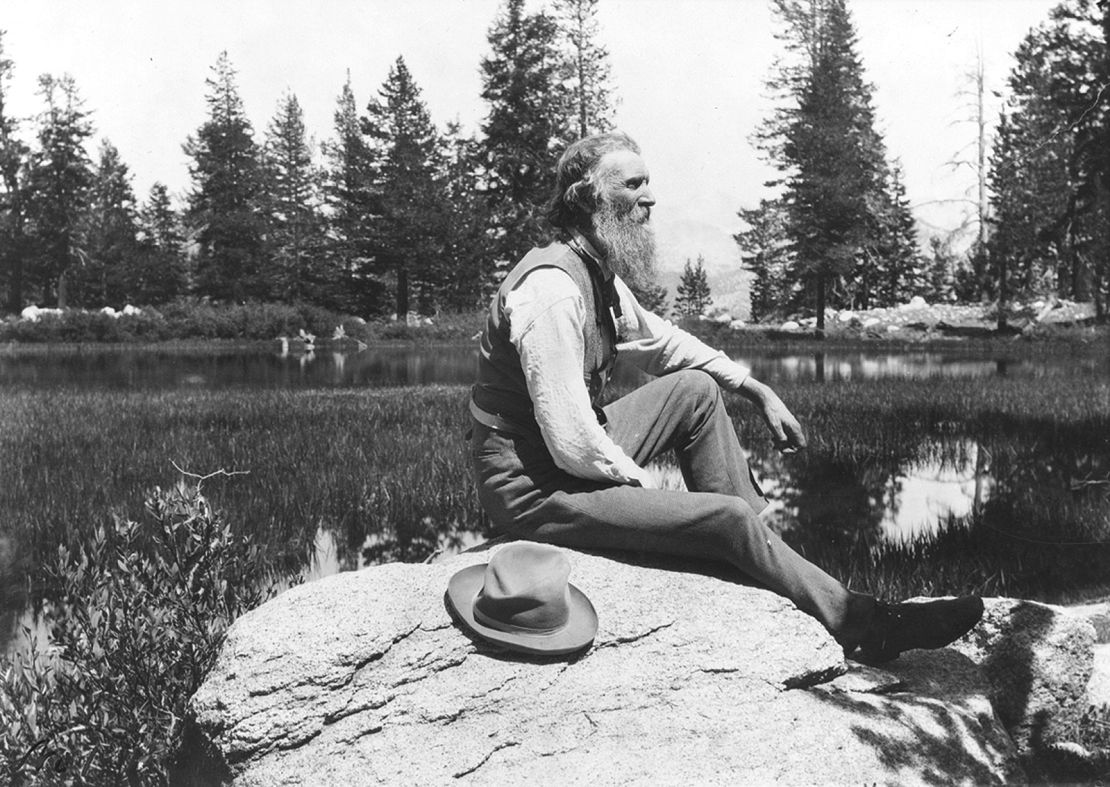
The good news is that relatively speaking, camping is among the safer forms of recreation you can enjoy right now.
Even so, it’s not without risk. But if you know what you’re getting into and follow some practical camping safety tips, you can enjoy that soul-cleansing getaway without much worry.
What’s the camping risk?
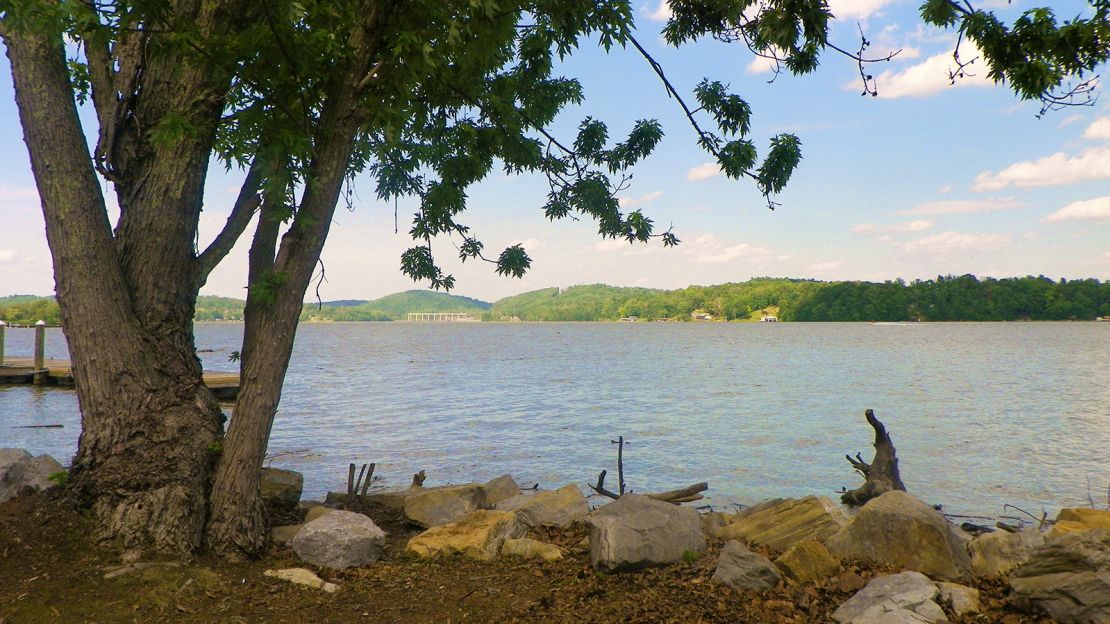
In June, the news site MLive consulted with four public health specialists in Michigan who collectively rated 36 activities by their professionally estimated level of risk. They each made their own assessments and averaged out the results.
On a scale of 1 to 10 with 10 being the highest risk level, camping came in at a relatively low 3. That was on par with playing golf and or getting groceries at a store following safety protocols.
For comparison, they rated playing tennis at just a 1 and going to gyms and amusement parks at an 8.
CNN Travel talked with one of those four experts – Dr. Matthew Sims, director of infectious disease research at Beaumont Health in Michigan – about what factors make camping a lower-risk activity and got his tips on what campers should do (and not do) to make it even safer.
The ‘great’ outdoors
The 25 most gorgeous destinations on Earth
Sims, who enjoyed camping back in his undergrad and medical school days, said one of the biggest things in camping’s favor is you’re mostly outdoors.
Sims contrasted camping with going to bars, high-risk areas that are typically cramped, crowded and indoors. That’s a great environment for a virus such as Covid-19 to spread, and the quartet rated it a 9 on their risk scale.
“An enclosed area tends to fill with the virus over time.” Outdoors, on the other hand, the virus can disperse much more easily, Sims said.
“Let’s say someone coughs. You’re not going to fill an outdoor space with the virus.”
Think small
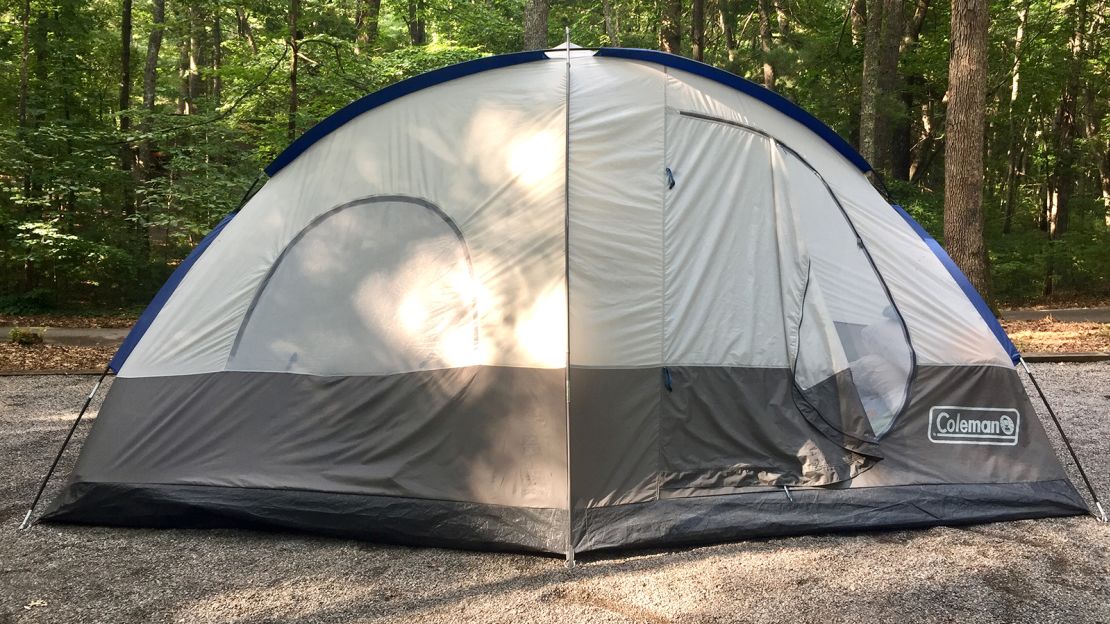
Solo trips and outings with people you live with are the best ways to go.
“Going in bigger groups – that’s going to make your risk a little higher,” Sims said. “It’s not going to be as safe as going with your own family or staying at home. Interaction with other people outside the people you’re living with raises your risk.”
Family who share a home shouldn’t have any additional worries sharing space while camping.
“The people who share a tent in general are already in contact with each other. If a family goes camping, they’re already exposed to each other.”
He said as long as the family members aren’t exposed to other people, staying in a house together vs. sharing a tent or an RV shouldn’t make a difference.
“Staying in smaller groups is safer. Stay away from people you don’t know,” Sims said. “If you encounter a new group, say on a hike, keep your distance from them. Staying to yourself is a safer thing. It’s great to be friendly, but don’t go up and share pictures.”
Things to avoid
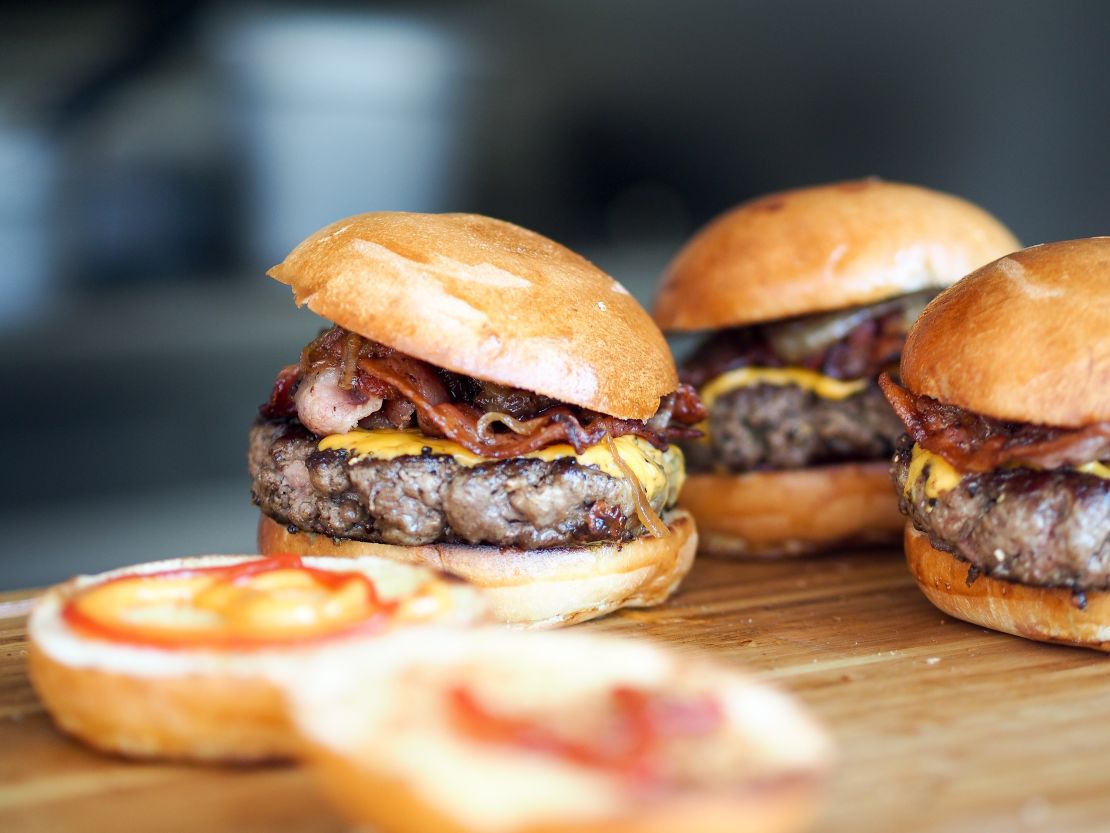
Sims pointed out some other things that could raise the risk of catching Covid-19:
– Singing around a campfire. “That aerosolizes more virus. If you’re going to sing around a campfire, that’s a potential risk.” So, if you’re having a moment and just need to burst into song, spread out.
– Smoke from campfire. That can make you cough and help spread the virus. If you have a fire, don’t crowd around it. In summer, maybe you can just do without one.
– Shared food. This can be a problem when you’re camping, especially if you go with a larger group.
“If you make a big pot of stew and everyone goes and takes from the same pot and uses the same utensils and ladle, that’s a risk,” Sims said.
Avoid buffet-style situations, especially in groups outside the family. People may share a “big plate of burgers, hot dogs or ribs. People can pick up food and then put it back.”
We’re still learning about how Covid-19 spreads, but be mindful that cold, dry air can carry other types of viruses farther, Sims said.
So, if you’re thinking about a camping trip, why not do it now when it’s peak summer in the Northern Hemisphere?
Wait – more authoritative tips!
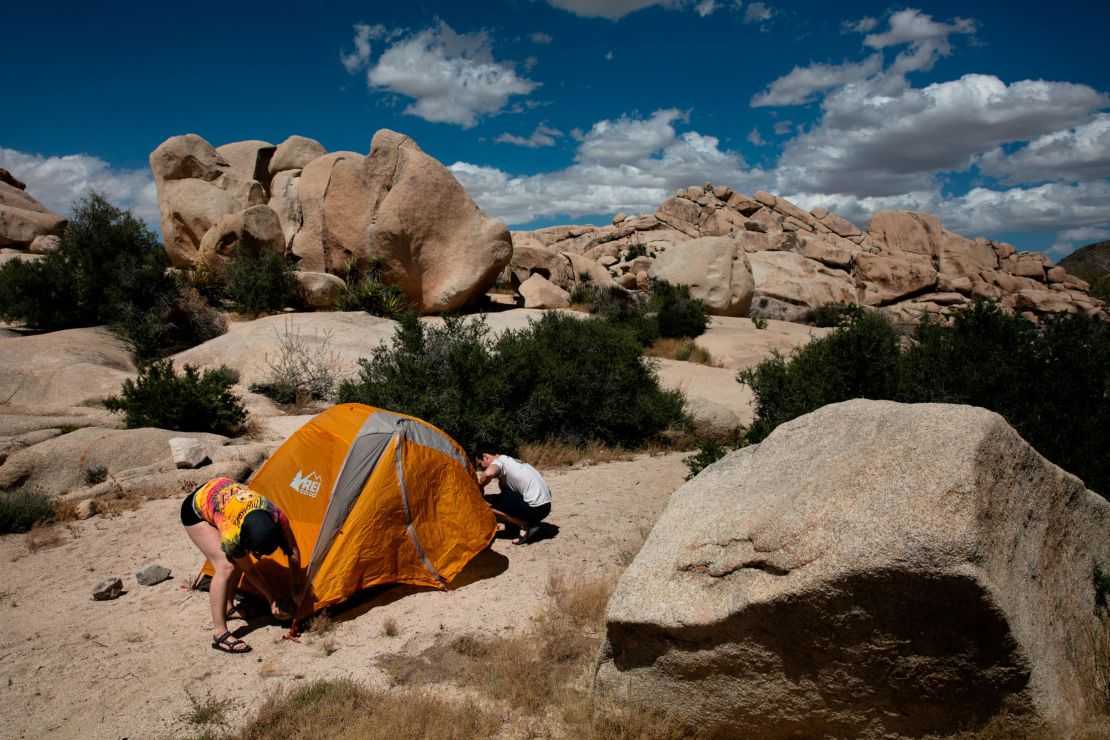
There are numerous other sources with greats safety tips if you decide to go camping, whether it’s on public or private sites.
The state parks system in Minnesota has an excellent, detailed online guide. The Department of Forests, Parks and Recreation in Vermont, another state that’s a favorite of the outdoors set, has important tips. The California Department of Parks and Recreation also has good advice on enjoying the natural wonders.
Some of the highlights from their detailed suggestions:
– Don’t be spontaneous; make plans: Place reservations and buy permits, firewood, ice and other things online or by phone before you get to the campsite.
– Come supplied with cleaning and personal hygiene agents: Arrive with your own soap, surface disinfectants, hand sanitizer, paper towels and toilet paper. This is one area where you shouldn’t skimp.
– Social distancing: Set up your campsite – including sleeping, campfire and eating areas – to be as far as possible from nearby campsites that hold people from different households.
– Be respectful of the rules: Follow all campground rules and instructions for your own safety and that of others. That might include wearing a face mask in public areas, heeding social distancing signs and leaving furniture such as chairs and picnic tables where you found them.
– Avoid contact sports: For instance, outdoor basketball courts may be open to shoot hoops, but signs prohibiting contact games should be respected.
– Trails: If a trail is marked closed, there’s a good reason. Don’t go on it.
– Boating: Don’t raft up to other boats and cluster up on lakes.
– Restrooms: If you got an RV, use your own restroom instead of the public ones. The fewer people using the common ones, the better.
Come up with your own creative solutions
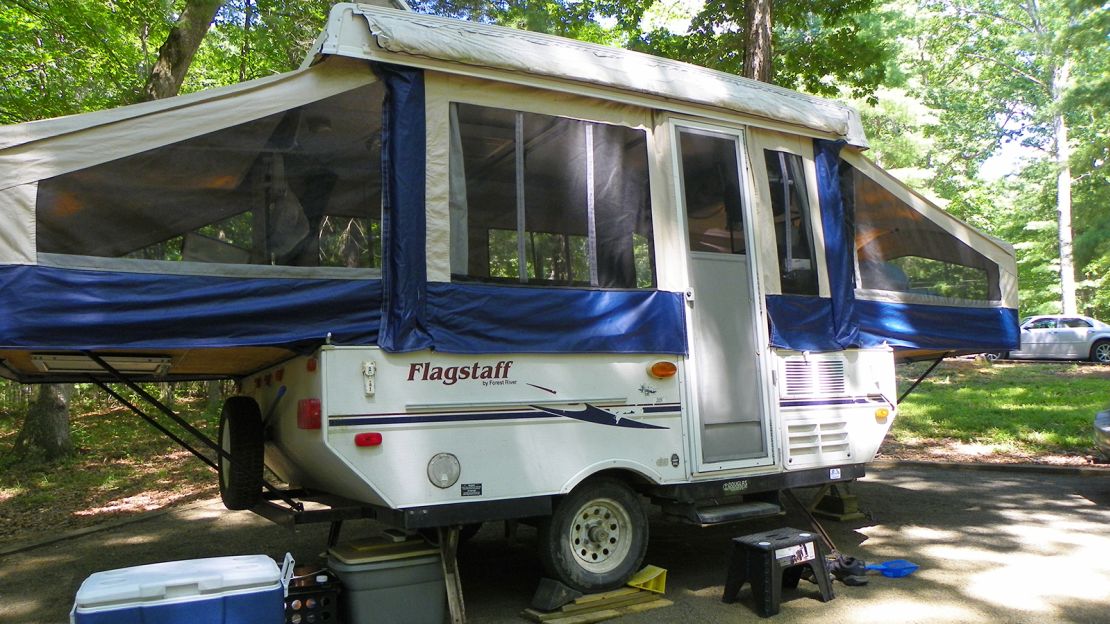
CNN Travel recently spoke with camping enthusiasts who have come up with their own ways to make camping safer.
Debi Gouge, a small-business owner and art instructor in Wythe County, Virginia, has a longtime love of camping.
The pandemic has hit Debi, husband Tim Gouge and their nine dogs hard. She’s had to be particularly cautious about staying virus-free because of a lifelong kidney condition.
She said her husband came up with a great idea – day camping. “We set up our camper at Claytor Lake, which is within 20 miles of us, and spend the days camping, hiking … cooking out – the works! And then we come home late in the evening to sleep since we cannot have a pet sitter right now, and next morning, back to the campground.”
Kip Hardy, her husband, Brian, and their two children like to use their home in Decatur, Georgia, as a base to explore the Southeast.
They’ve turned to campgrounds on large, private farms and formed a “social bubble” with one other family as two ways to remain in the outdoors.
Two more pieces of essential gear
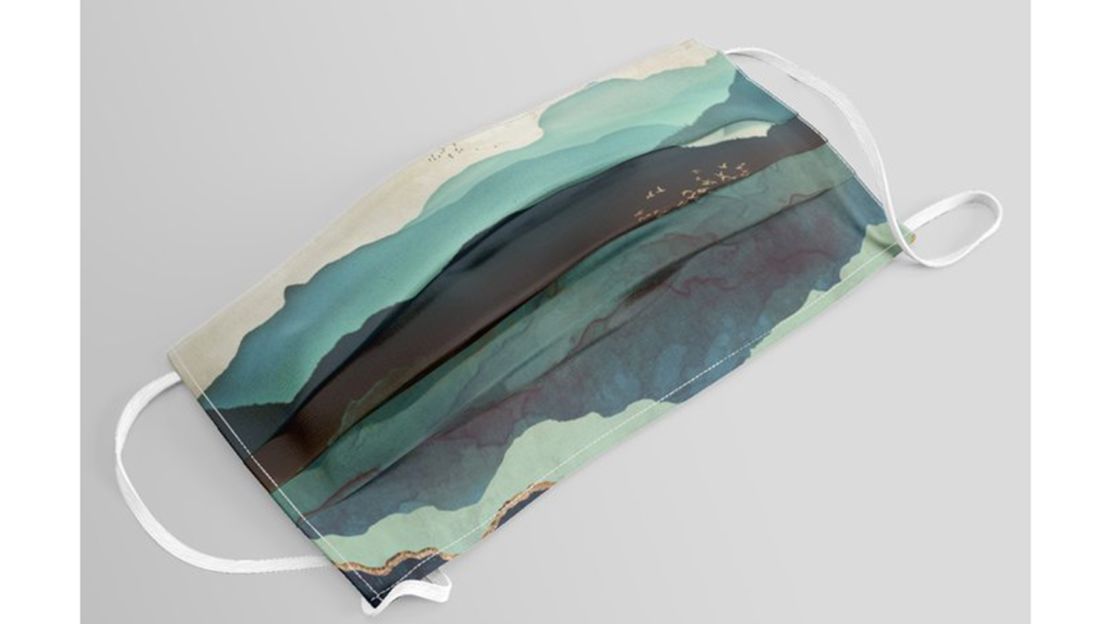
Along with the usual gear you’ve always needed for camping, the pandemic has added two more essentials to pack, Sims said.
What else do you need? “Hand sanitizer. Hand sanitizer. Hand sanitizer.” Sims said make sure it’s at least 60% ethanol or 70% isopropanol, which is what the CDC recommends.
Also, “bring masks. Even out in the fresh air, you never know if you’ll have to go into a store. Even if you think you aren’t going to be interacting with anyone, bring masks.”
In the end, Sims said just bring the same precautions you’re already using with you to the camp site.
“It’s the same thing as anywhere else – social distancing, masking, cough etiquette and hand hygiene. There’s no magic to it.”




























